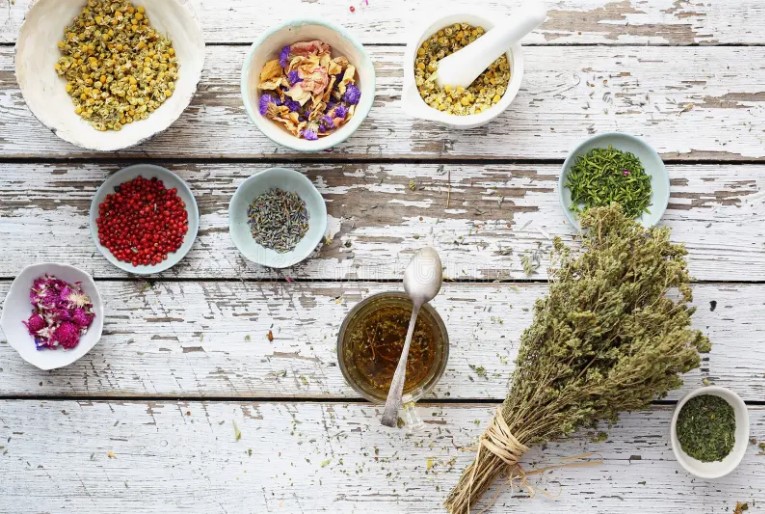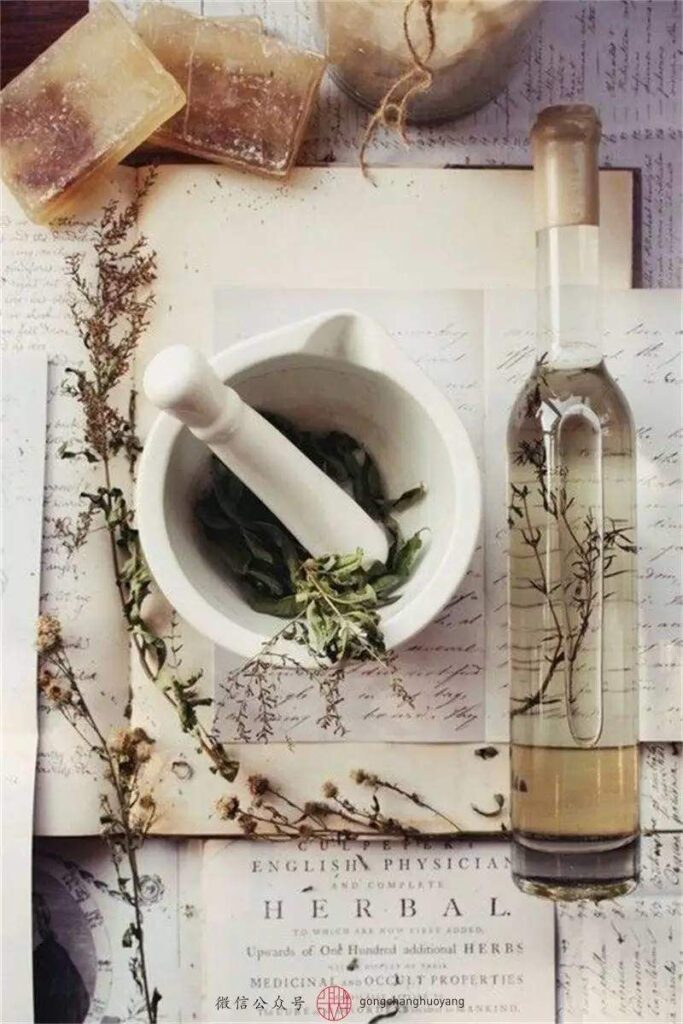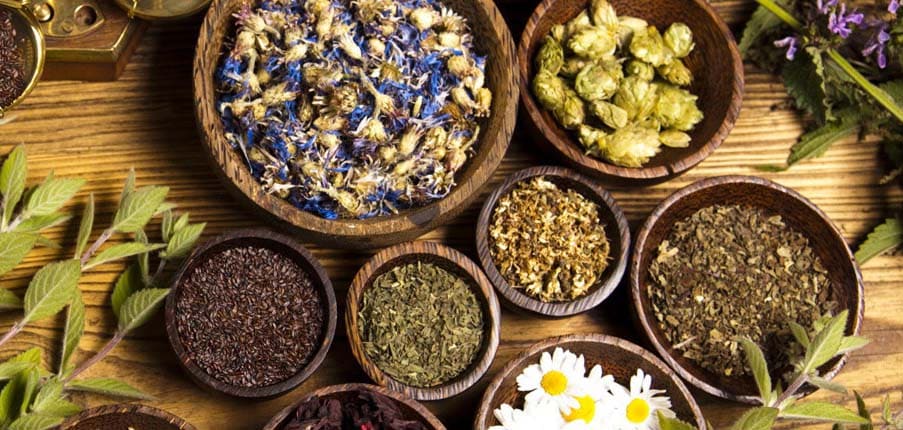Explore the world of herbalism and natural remedies—how ancient plant-based healing can improve modern wellness.
The Timeless Power of Herbal Medicine
Have you ever sipped ginger tea to soothe an upset stomach or applied aloe vera gel to heal a sunburn? These simple acts are part of herbalism, one of the oldest forms of medicine known to humanity.
For thousands of years, cultures worldwide have relied on plants for healing—from Traditional Chinese Medicine (TCM) to Ayurveda, Native American herbalism, and European folk remedies. Today, modern science is rediscovering what ancient healers always knew: nature provides powerful remedies.
- The history and science behind herbal medicine
- Evidence-based benefits of key herbs
- Practical remedies for stress, digestion, immunity, and more
- Safety precautions and how to integrate herbalism into modern life
Whether you’re a curious beginner or a seasoned herbal enthusiast, this guide will help you harness nature’s healing power safely and effectively.
The History and Science of Herbalism
The Ancient Roots of Herbal Medicine
Herbalism dates back over 60,000 years, with archaeological evidence showing Neanderthals used medicinal plants like yarrow and chamomile.
Key Historical Systems:
- Ayurveda (India, 3,000 BCE): Uses turmeric, ashwagandha, and holy basil.
- Traditional Chinese Medicine (TCM, 2,000 BCE): Relies on ginseng, astragalus, and goji berries.
- Greek & Roman Herbalism: Hippocrates prescribed garlic for infections, while Dioscorides wrote De Materia Medica, a foundational herbal text.
- Native American Medicine: Echinacea, goldenseal, and white willow bark were staples.
How Herbal Medicine Works: The Science Behind Plants
Plants contain bioactive compounds that interact with our bodies in powerful ways:
Key Plant Compounds & Their Effects
| Compound | Found In | Health Benefit |
|---|---|---|
| Curcumin | Turmeric | Anti-inflammatory, antioxidant |
| Gingerol | Ginger | Nausea relief, digestion aid |
| Allicin | Garlic | Antibacterial, immune-boosting |
| Echinacosides | Echinacea | Enhances immune response |
| Linalool | Lavender | Reduces anxiety, promotes sleep |
Scientific Validation:
- A 2022 NIH study confirmed echinacea reduces cold duration by 1.5 days.
- Ginger outperformed anti-nausea drugs in a 2021 meta-analysis (British Journal of Nutrition).
Wikipedia Link: Learn more about pharmacognosy (the study of medicinal plants).

Top Herbal Remedies for Common Ailments
Stress & Anxiety Relief
Modern life is stressful—thankfully, herbs can help.
Best Calming Herbs
- Ashwagandha (Adaptogen) – Reduces cortisol by 30% (study in Medicine).
- Chamomile—Acts like a mild sedative; great for bedtime tea.
- Lemon Balm—Boosts GABA (a calming neurotransmitter).
Quick Remedy: “Try ashwagandha latte: Mix powder with warm milk and honey.”
Digestive Health
From bloating to heartburn, herbs can soothe your gut.
Best Digestive Herbs
- Peppermint—Relieves IBS symptoms (40% improvement in gastroenterology).
- Ginger—Speeds up stomach emptying (great for nausea).
- Fennel—Reduces bloating (used in Mediterranean cuisine).
Immune Support
Instead of reaching for pills, try these immune boosters.
Top Immune Herbs
- Elderberry—Cuts flu duration by 4 days (Journal of International Medical Research).
- Astragalus—Increases white blood cell activity.
- Garlic—Allicin fights viruses and bacteria.
Recipe Idea: “Elderberry syrup (simmer berries with honey and cinnamon).”
How to Use Herbs Safely & Effectively
Forms of Herbal Medicine
- Teas & Infusions (e.g., chamomile tea for sleep)
- Tinctures (alcohol-based extracts, fast-acting)
- Capsules & Powders (convenient for daily use)
- Essential Oils (lavender for relaxation, peppermint for headaches)
Safety Considerations
- Consult a doctor if pregnant, on medications, or with chronic conditions.
- Start low & slow—some herbs interact with drugs (e.g., St. John’s Wort and antidepressants).
- Quality matters—choose organic, lab-tested brands.

Embrace Herbalism as Part of a Holistic Lifestyle
Herbalism isn’t about rejecting modern medicine—it’s about combining ancient wisdom with science for better health.
Next Steps:
✅ Try one herb this week (e.g., ginger tea for digestion).
✅ Research local herbalists for personalized advice.
✅ Grow your own herbs (basil, mint, and thyme are easy starters).
Nature’s pharmacy is vast and powerful. Will you explore it?
Growing Your Own Medicinal Herb Garden
One of the best ways to ensure you have fresh, high-quality herbs is to grow them yourself. Whether you have a backyard, a balcony, or just a sunny windowsill, cultivating medicinal plants is rewarding and cost-effective.
Easy Herbs to Grow at Home
Basil (Ocimum basilicum)
- Benefits: anti-inflammatory, supports digestion, rich in antioxidants.
- Growing Tips: Needs full sun and well-drained soil. Pinch off flowers to encourage leaf growth.
- How to Use: Fresh leaves in salads, teas, or as a pesto base.
Peppermint (Mentha piperita)
- Benefits: Relieves indigestion, soothes headaches, and boosts mental clarity.
- Growing Tips: Grows aggressively—best in pots to prevent spreading.
- How to Use: Brew as tea, add to smoothies, or inhale essential oil for focus.
Calendula (Calendula officinalis)
- Benefits: heals skin irritations, reduces inflammation, and is antifungal.
- Growing Tips: Thrives in full sun, tolerates poor soil.
- How to Use: Infuse petals in oil for salves or use in healing teas.
Thyme (Thymus vulgaris)
- Benefits: Antibacterial, supports respiratory health, rich in vitamin C.
- Growing Tips: Drought-resistant, prefers sandy soil.
- How to Use: Add to soups; steep in honey for cough relief.
Container Gardening for Small Spaces
Don’t have a garden? No problem! Many herbs thrive in pots:
- Best Herbs for Containers: Rosemary, chives, parsley, lavender.
- Tips for Success:
- Use well-draining soil (add perlite or sand).
- Water when the top inch of soil is dry.
- Rotate pots for even sunlight exposure.
Pro Tip: “Start with 2-3 easy herbs like mint and basil before expanding.”
Herbal Preparations—DIY Remedies
How to Make Herbal Teas (Infusions & Decoctions)
- Infusion (for delicate leaves & flowers):
- Steep 1-2 tsp of dried herb in 1 cup of boiling water for 5-10 mins.
- Best for: chamomile, peppermint, and lemon balm.
- Decoction (for roots & barks):
- Simmer 1 tbsp chopped root in 2 cups water for 15-20 mins.
- Best for: ginger, turmeric, and dandelion root.
Crafting Herbal Tinctures
Tinctures are concentrated liquid extracts (great for long-term use).
Basic Alcohol Tincture Recipe
- Fill a jar ⅓ full with dried herb (e.g., echinacea).
- Pour 80-proof vodka or brandy until herbs are fully submerged.
- Seal & store in a dark place for 4-6 weeks, shaking occasionally.
- Strain and store in amber dropper bottles.
Dosage: Typically 20-40 drops, 2-3x daily (varies by herb).
Healing Herbal Salves & Oils
Perfect for skin irritations, muscle pain, and burns.
Simple Calendula Salve Recipe
- Ingredients:
- 1 cup calendula-infused oil
- 1 oz beeswax
- 10 drops lavender essential oil (optional)
- Steps:
- Melt beeswax in a double boiler.
- Mix in infused oil and essential oil.
- Pour into tins, let cool, and seal.
Uses: cuts, eczema, diaper rash.
Integrating Herbalism Into Modern Life
Combining Herbs with Conventional Medicine
- Supportive Use: Turmeric for inflammation alongside doctor-prescribed treatments.
- Caution: St. John’s Wort interferes with antidepressants and birth control.
Building a Natural First-Aid Kit
- Must-Have Herbs:
- Aloe vera gel (burns)
- Arnica cream (bruises)
- Echinacea tincture (immune support)
Herbalism for Long-Term Wellness
- Daily Rituals:
- Morning: Ginger-lemon tea (digestion)
- Evening: Chamomile-lavender tea (sleep)
Final Thoughts: Your Herbal Journey Starts Now
Herbalism isn’t a trend—it’s a return to ancestral wisdom backed by modern science. Whether you’re sipping tulsi tea for stress or growing your own medicinal garden, every small step connects you deeper to nature’s healing power. Read More>>>>
Your Action Plan:
🌿 Pick 1-2 herbs to try this month.
📚 Research reputable sources (e.g., American Herbalists Guild).
🌎 Support local herbalists & sustainable brands.
The earth provides—will you embrace its gifts?








